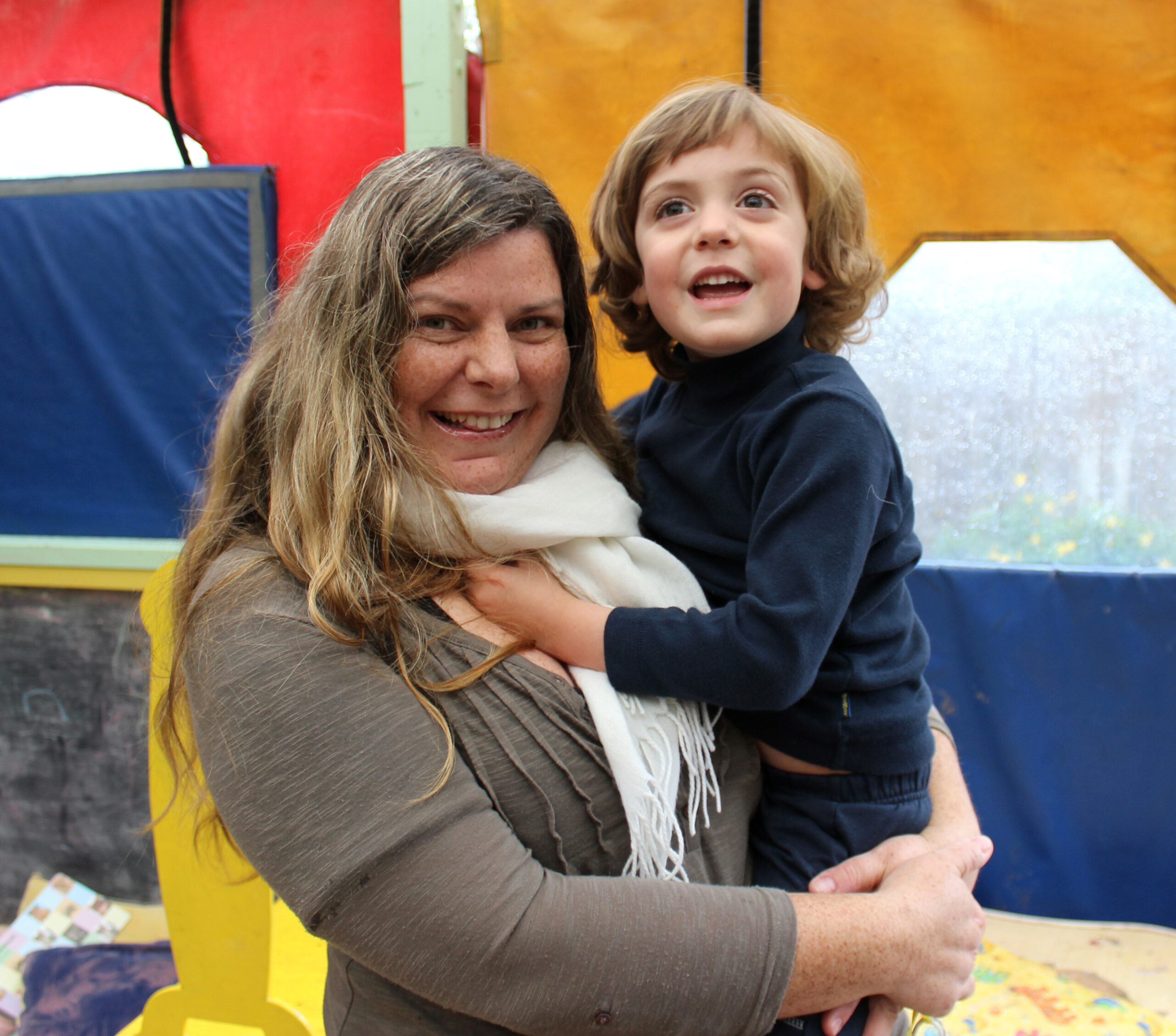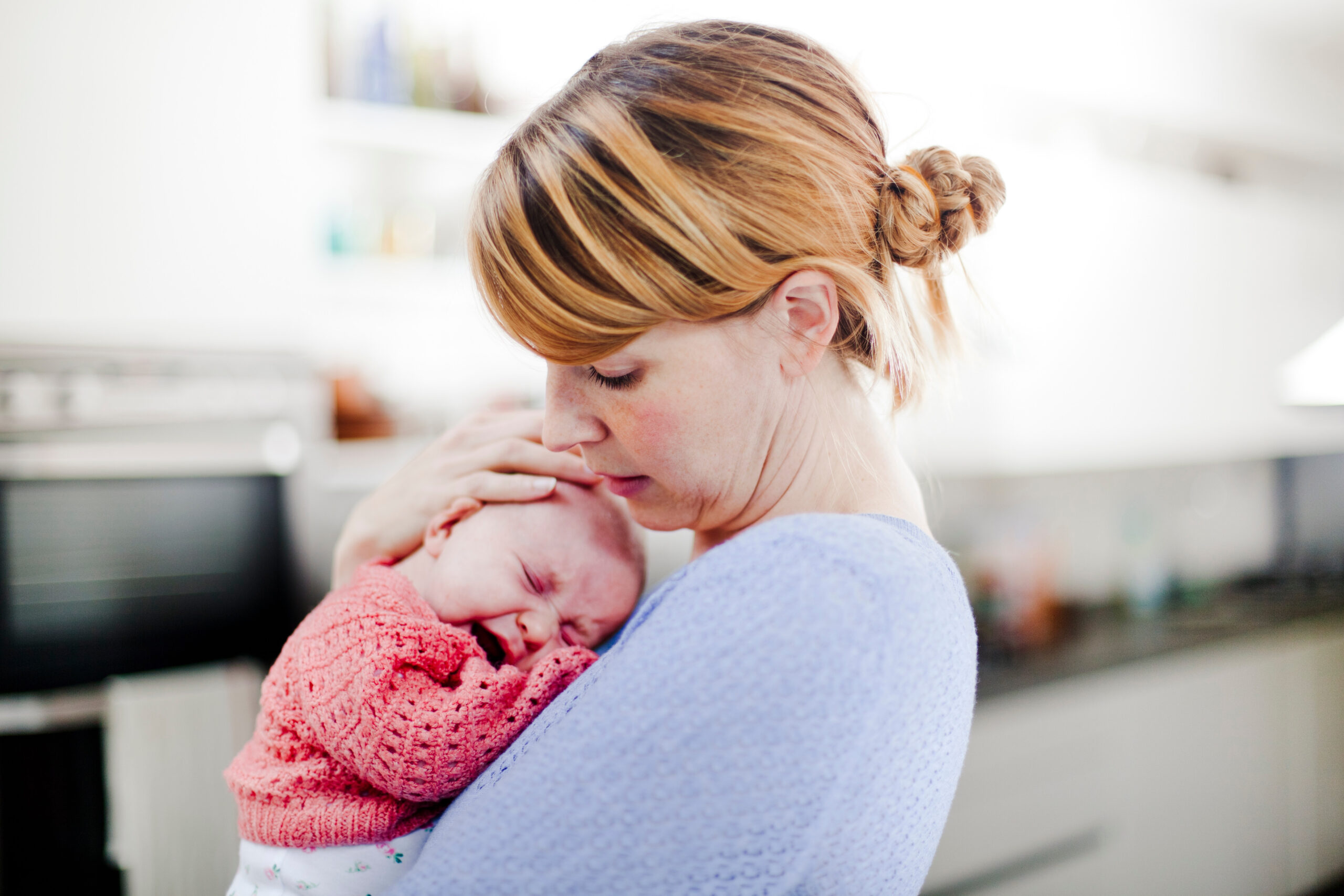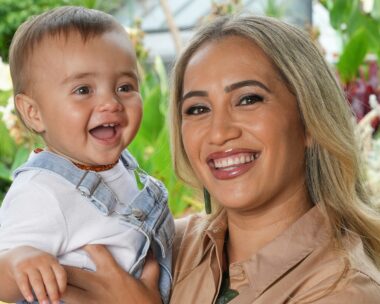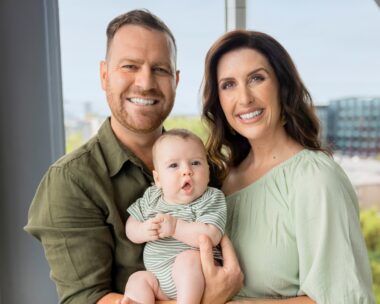New mothers struggling to cope don’t always get the help they need, even when they ask for it, an advocate for mothers with postnatal depression (PND) says.
Kristina Paterson is the founder of Mothers Helpers, a not-for-profit organisation that offers support to mothers who have or are at risk of PND, and she will be speaking at the Auckland Baby Show on 18-20 August about how to cope when the realities of parenthood don’t match up to expectations. Around one in five women in New Zealand experience PND and one in eight, antenatal depression.
When Paterson became pregnant with her son eight years ago she suffered from antenatal anxiety and PND, but was not diagnosed until her son was nine months old.
“So for 18 months I went undiagnosed, and I actually went for help quite often. I told my midwife that I was worried I was going to develop PND [because I had a history of depression and anxiety] and she never screened me at all. I asked her to refer me to Maternal Mental Health [Service]… and she said she would but she never did.”
Paterson later complained to the Health and Disability Commissioner “but nothing came of it and one of the reasons is because there is nothing mandatory to say that midwives have to address mental health in women, even though suicide is the leading cause of maternal deaths in New Zealand.”
Between 2006 and 2013, 24 per cent of maternal deaths in New Zealand were due to suicide. That’s 22 women out of 90 who died by suicide during pregnancy or within 42 days of their pregnancy ending.

Mothers Helpers founder Kristina Paterson with her son.
Paterson changed midwives after her son was born and her new midwife asked her to complete the Edinburgh Postnatal Depression Scale (a check sheet which helps identify PND symptoms).
“I filled it out but she never asked for it so I never gave it to her. It would have shown that I was pretty bad but at that point I was really afraid. I felt like if I fronted up to it I’d be diagnosed and treated and I just didn’t want to be – I was in denial. There’s some irrational thinking that happens when you have PND. I really needed her to push me a bit harder but she didn’t and I think that is one of the problems; that there are so many barriers to mothers getting help that you do actually need somebody who is in that kind of role who will say, ‘Actually, it’s okay to ask for help and if you have PND that’s okay – we can do something about it’.”
Paterson says that even after she was diagnosed she struggled to get help because she didn’t meet the criteria to be taken under the wing of Maternal Mental Health.
“Maternal Mental Health is only resourced to take the most severe cases so only about 25 per cent of women will meet the criteria. The rest are left to pay for their own counselling [which is encouraged as part of treatment] which most can’t afford. So those women often don’t get the help they need.”
Paterson believes two thirds of women are also diagnosed late.
In Paterson’s case there were a number of risk factors that she feels health professionals around her should have picked up on. During her pregnancy she temporarily separated from her husband, and then after their son was born they separated permanently. Paterson’s mother was diagnosed with cancer; she had no family support and a history of depression and anxiety.

During the nine months after her son was born her mental health went downhill until she got to a point where she would ring her husband at work and beg him to come home.
“I couldn’t imagine that many hours of looking after a baby by myself, I just felt so anxious and so overwhelmed. And it’s quite relentless, every day is exactly the same and it just felt like every day was very long.
“But really the clincher was that my energy levels became so low. Honestly, I’ve had glandula fever and it was nothing like PND. Every tiny bit of energy I mustered was just for the baby, there was nothing for me. Getting off the couch felt impossible and it was that lack of energy that finally took me to the doctor.”
Paterson was diagnosed and given medication: “I started to feel better within a couple of weeks.”
She has remained on medication for depression but many women who suffer from PND are able to come off theirs within six months to two years, depending on their individual circumstances.
Paterson launched Mothers Helpers in 2010 and says of life now: “I live with depression and I’m pretty open about it because I feel I need to be. The majority of the time I am well and I’m also aware of my own signs of when my mental health is taking a decline. I’ve learned how to respond so that I can get that back on track before things turn to custard.”
Paterson calls in extra childcare hours, goes for regular walks, eats properly and talks to somebody she trusts.
“Just with those four things I start to come right. It’s just a bit of re-balancing and time.”
She and her son are extremely close. “He was my miracle baby because I was told when I was younger that I might not be able to have children, so when I became pregnant I was thrilled to be having a baby. I look back on his first year and am not sure if I’ve got photographs or memories. I was gutted that my joy of that experience was stolen from me. But now I can say that I’m completely in love with him.
“I really believe that parenting shouldn’t be a one-person job,” she concludes. “It shouldn’t even be a two-person job because even shared between two that puts an enormous strain on that relationship. To take that strain off requires the whole family getting involved.”

Signs and symptoms of postnatal depression
If you’ve suffered from depression before, or there is a history of mental illness in your family, you are more at risk of experiencing PND. You are also more at risk if you go through significant stress or loss during pregnancy or after your child is born – but PND can affect anybody.
“You can have all the risk factors and not get PND and none of the risk factors and still get PND,” says Paterson. “Sometimes those mothers [with few risk factors] can feel even worse because they feel like they ‘don’t have any reason’ to be feeling low.”
If you experience some or any of these signs/symptoms, contact Mothers Helpers or speak to your Lead Maternity Carer (LMC) or GP – and ask about the Edinburgh Postnatal Depression Scale:
• Persistent low mood
• Tearfulness
• Agitated/irritable/angry
• Difficulty getting to sleep or sleeping too much
• Waking up a few hours before you’re due to wake up and unable to get back to sleep
• Negative thoughts
• Low self-esteem
• Loss of appetite or increased appetite
• Loss of interest in the things you used to be interested in
• Low energy
• Low motivation




